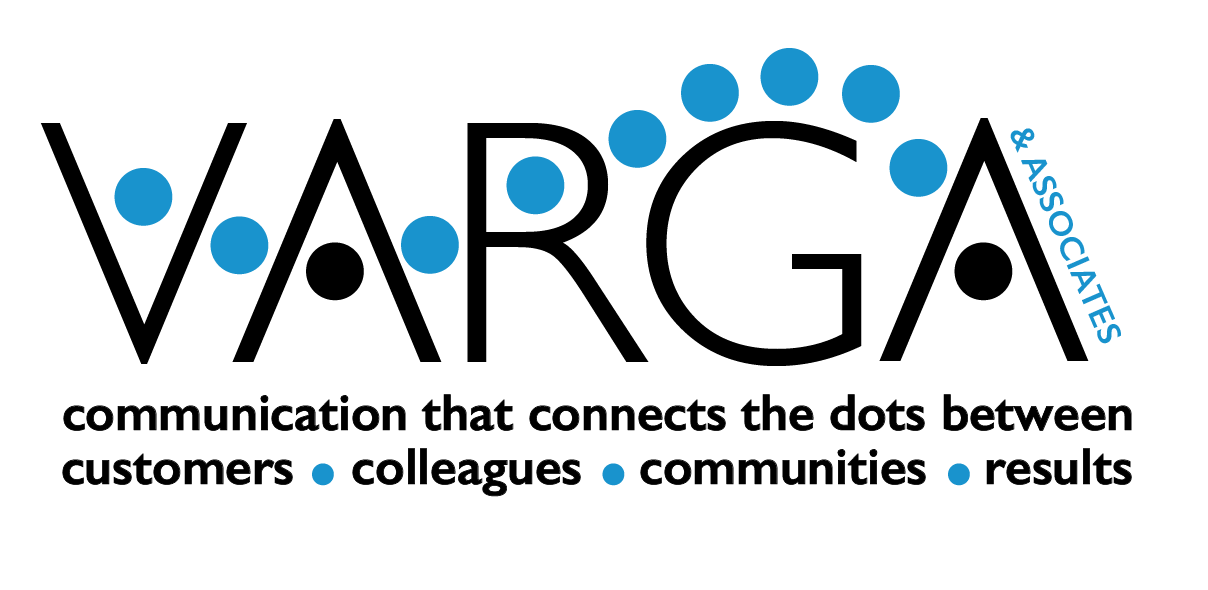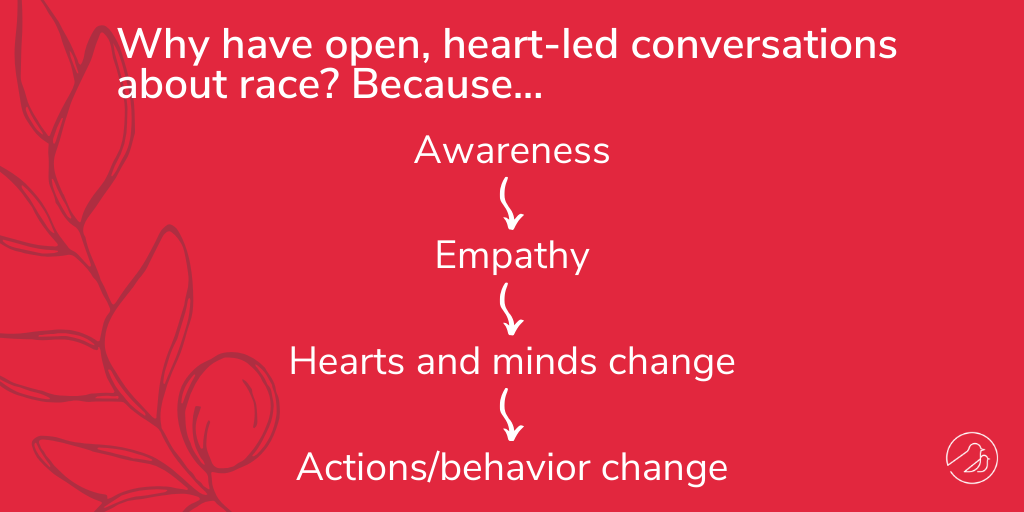I’ve always thought that the problems of the world could be solved if we would just be willing to enter into deep, meaningful conversations about them. The wise Fred Rogers once said, “Anything that’s human is mentionable, and anything that is mentionable, is manageable.” We are living through times none of us could have imagined. From the pandemic to racial justice protests to political turmoil – these have left many of us tongue-tied and unsure of how to articulate all that we are thinking and feeling. All of this is compounded by the fact that we are more isolated than ever before and yet communication – conversation – has never been more essential.
As a communication consultant, I’ve been asked lately for suggestions on how to best foster an environment at work where the topics of racism, social injustice, and the Black Lives Matter movement could be discussed and processed. Organizations, particularly those with a dominant white employee population, are interested in making sure employees have a safe space to unpack the wave of protests since the murder of George Floyd. My first suggestion is to always point people in the direction of the Diversity, Equity, and Inclusion professionals who are the experts in this space. My second suggestion is simply encouraging people to be in the conversation.
I recently heard Felicia Davis, President, and CEO of the Chicago Foundation for Women, suggest that we should all – black and white – stop saying we are “woke” and instead acknowledge that we are all in a state of awakening. If we can recognize that we don’t know what we don’t know, that can be a profound beginning. In a similar vein, Mellody Hobson’s TED Talk Color Blind or Color Brave? suggests we be color brave, not color blind. “Race in America makes people completely uncomfortable,” says Hobson. “Bringing it up is like the conversational equivalent of touching the third rail.” Color blindness is very dangerous because it means we’re ignoring the problem. The solution is to actually see color and recognize the inherent injustices it provokes – only then can we tackle solutions. If we don’t see it, it doesn’t exist.
So, how do we have the conversations we need to have right now? How do you muster the courage to bravely see color? I want to offer a few suggestions that may help:
- Be curious and do some homework. You wouldn’t dream of going on a job interview without doing extensive research on the company you are wanting to hire you. In a similar way, you don’t want to enter into a discussion on racism without doing a little homework. For starters, take time to watch the Netflix film 13th or pick up a copy of How to Be An Antiracist by Ibram X Kendi or White Fragility by Robin DiAngelo, or listen to 1619 Build an informed foundation for a meaningful dialogue. You don’t have to be an expert, but you do need to do some homework.
- Ask: How has this been for you? It really doesn’t have to be more complicated than picking up the phone and calling a Black colleague and asking them how they are and being willing to listen and learn. There is no perfect question or conversation starter. It may feel awkward, but the goal is to demonstrate you care.
- Be authentically invested in taking action. Don’t look to your Black colleagues and ask “what can I do?” as that puts the heavy lifting on their shoulders to do the work for you. Instead, do some research and find ways you can proactively make a difference. Those actions could range from joining a march to working inside your organization on a task force to reveal the ways discrimination and unequal opportunity have harmed people of color and work to fix it, to hosting informal racial equity conversations in your living room to spending time educating yourself on the matters at hand.
- Keep what matters at the forefront. Taking advantage of this tremendous wave of reckoning and awareness is key. Being a positive ally for change is an amazing contribution. Be willing to question and/or speak up when you see racist actions, systems, policies, or structures. If not now, when?
As challenging as this time period is, it is also miraculous. I never thought I would see people of all races, backgrounds, and ages coming together to join the fight for racial justice. While it has been long overdue, the moment is here. Be a part of it. Be in the conversation.







